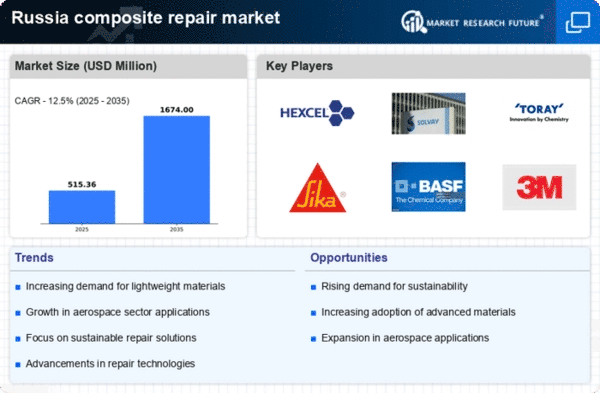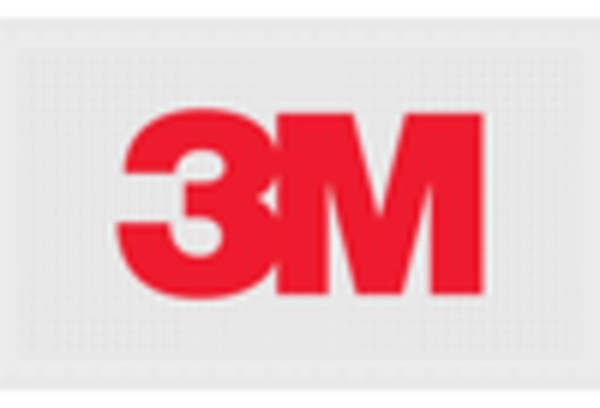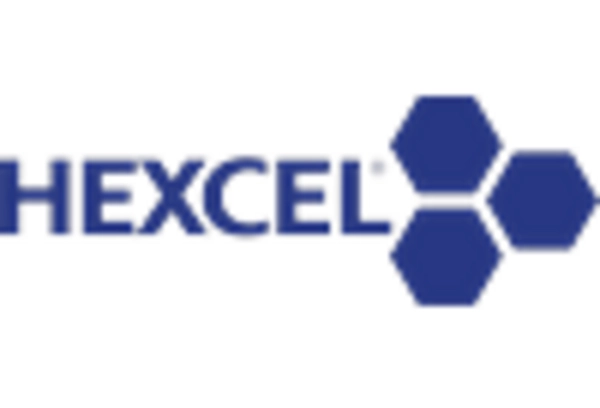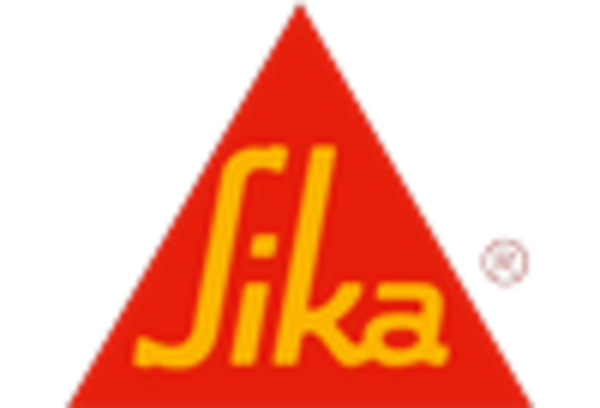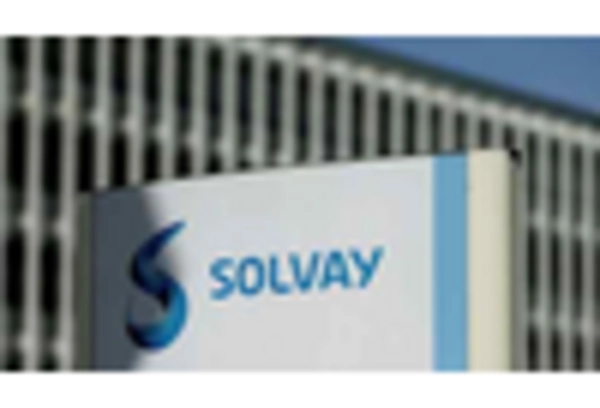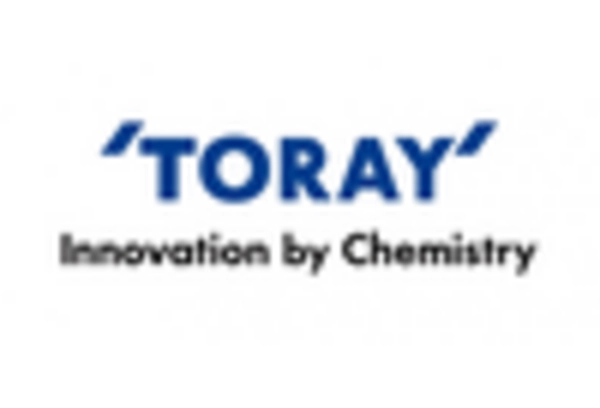The composite repair market in Russia is characterized by a dynamic competitive landscape, driven by increasing demand for lightweight materials and advanced repair solutions across various industries, including aerospace, automotive, and construction. Key players such as Hexcel Corporation (US), Solvay SA (BE), and Sika AG (CH) are strategically positioned to leverage their technological expertise and innovative product offerings. Hexcel Corporation (US) focuses on enhancing its composite materials portfolio, while Solvay SA (BE) emphasizes sustainability in its manufacturing processes. Sika AG (CH) is known for its strong emphasis on digital transformation and customer-centric solutions, collectively shaping a competitive environment that prioritizes innovation and operational efficiency.The market structure appears moderately fragmented, with several players vying for market share through localized manufacturing and optimized supply chains. Companies are increasingly adopting tactics that enhance their operational capabilities, such as investing in advanced manufacturing technologies and establishing regional partnerships. This competitive structure allows for a diverse range of offerings, catering to the specific needs of various sectors, while also fostering collaboration among key players to address market challenges.
In October Hexcel Corporation (US) announced the launch of a new line of high-performance composite repair materials designed specifically for the aerospace sector. This strategic move is likely to enhance Hexcel's market position by addressing the growing demand for lightweight and durable materials in aircraft maintenance and repair operations. The introduction of these innovative products may also facilitate Hexcel's expansion into new markets, further solidifying its competitive edge.
In September Solvay SA (BE) unveiled a partnership with a leading Russian aerospace manufacturer to develop sustainable composite repair solutions. This collaboration underscores Solvay's commitment to sustainability and positions the company as a key player in the transition towards eco-friendly materials in the aerospace industry. By aligning with local manufacturers, Solvay is likely to enhance its market presence and foster innovation in composite repair technologies.
In August Sika AG (CH) expanded its operations in Russia by establishing a new manufacturing facility dedicated to composite repair products. This strategic investment not only demonstrates Sika's confidence in the Russian market but also aims to improve supply chain reliability and reduce lead times for customers. The facility is expected to enhance Sika's ability to respond to local demand while reinforcing its competitive position in the composite repair sector.
As of November the competitive trends in the composite repair market are increasingly influenced by digitalization, sustainability, and the integration of artificial intelligence (AI) in manufacturing processes. Strategic alliances among key players are shaping the landscape, fostering innovation and collaboration. The shift from price-based competition to a focus on technological advancement and supply chain reliability is evident, suggesting that companies will need to differentiate themselves through innovative solutions and sustainable practices to thrive in this evolving market.


